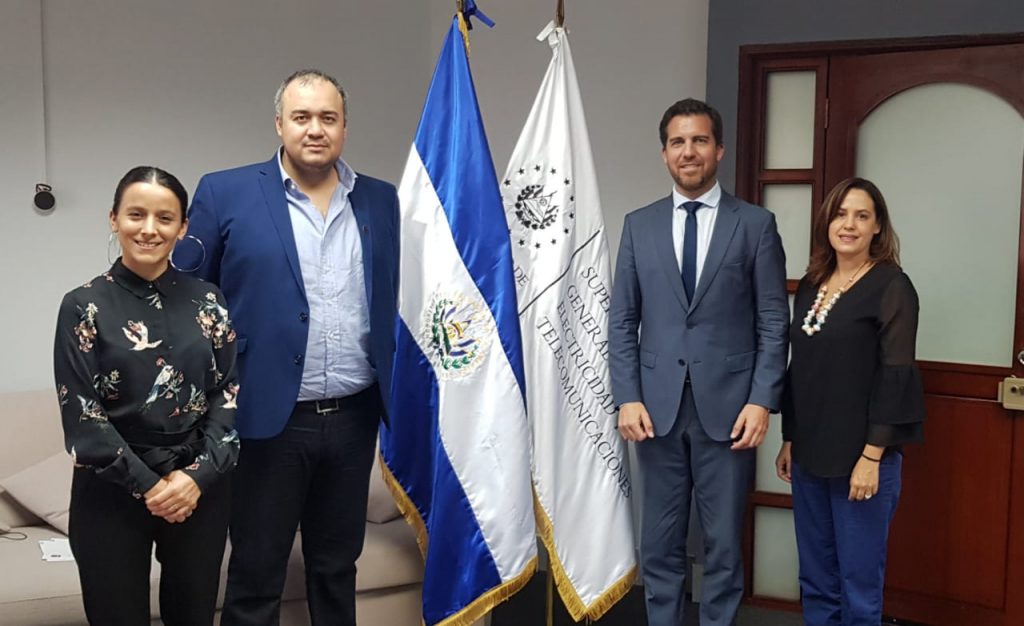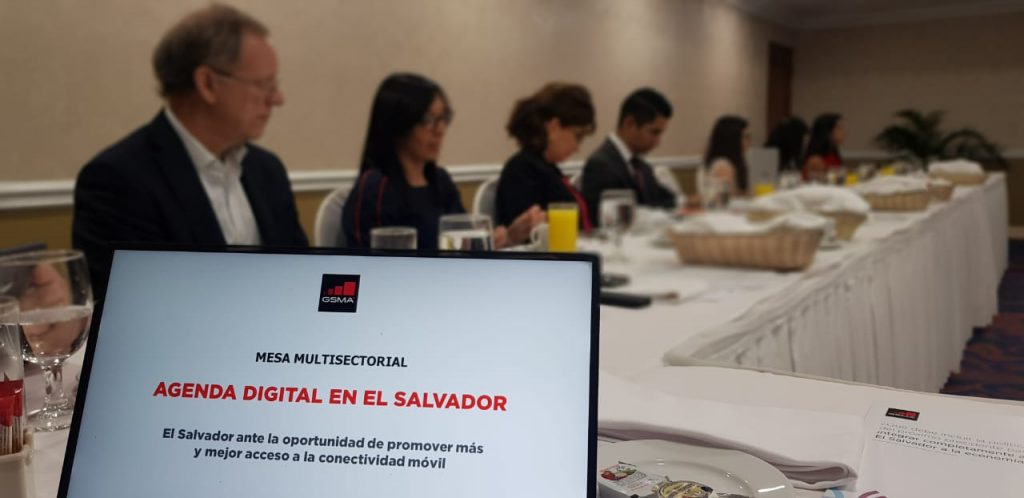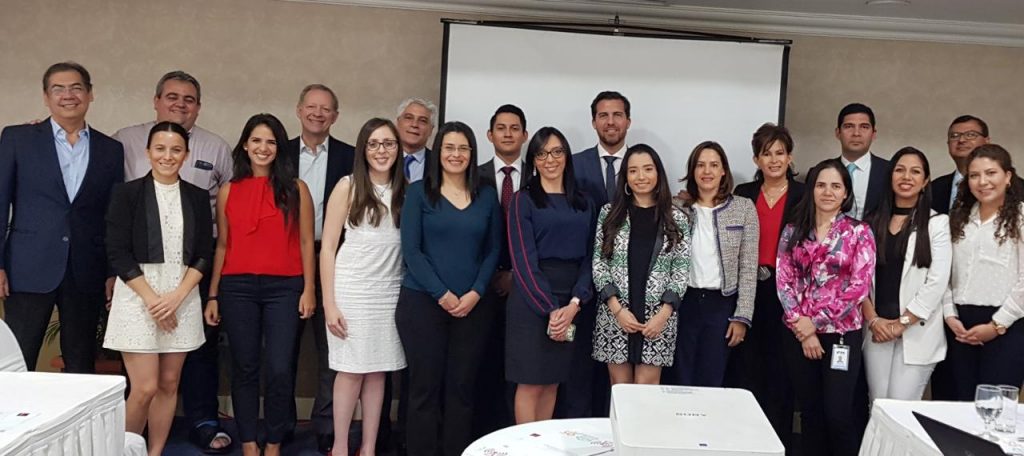Since taking office, President Nayib Bukele has made comments that show an understanding of the importance of digitalisation in modern societies and economies and a firm intention to drive this process in the country. To collaborate with this goal, and in the framework of the Digital Agenda for New Governments programme, GSMA Latin America held a series of activities and strategic meetings in the capital of El Salvador. The initiatives followed the policy recommendations submitted by the GSMA in January.
Photo: Lucrecia Corvalán (GSMA), Manuel Aguilar (SIGET), Lucas Gallitto (GSMA) and Johanna Hill (CASATEL)
The spectrum auction announced for December this year was one of the main topics of discussion with Manuel Ernesto Aguilar, Superintendent General of Electricity and Telecommunications (SIGET). Improving the limited spectrum assignment in El Salvador (184 MHz, well below regional the average of 345 MHz) is essential to extend connectivity in the country. “El Salvador is taking firm steps to connect more people to the benefits of the internet. Constant dialogue with mobile operators will be a major enabler,” said Lucas Gallitto, Public Policy Director, GSMA Latin America.
The meetings also included sessions with key figures in the country’s economy: Maria Luisa Hayem, Minister of Economy; Miguel Kattán, Secretary of Trade and Investment; and Fabrizio Mena, Undersecretary of Innovation.
GSMA Latin America highlighted the medium and long term benefits of removing the specific 5% tax known as the Special Contribution for Citizen Security and Coexistence (CESC), one of the proposals announced by President Bukele during the election la campaign. A further GSMA recommendation aims to ensure legal certainty and predictability for the large investments needed to develop network infrastructure. These measures will help to extend access to mobile services in El Salvador, where subscriber penetration is around 64 per cent and 4G connections are barely 14 per cent, even though the country has 4G network coverage close to 70% of the population (and 95 per cent 3G).
The week ended with the “Multisector Round Table for a Digital Agenda in El Salvador”. The meeting was headed by Lucas Gallitto and Lucrecia Corvalan, Senior Policy Manager, GSMA Latin America, and was attended by representatives from El Salvador’s Chamber of Telecommunications (CASATEL) and executives from local operators Claro, Digicel, Movistar and Tigo. Other participants included representatives from local organisations: National Association of Private Companies (ANEP), Salvadoran Industrial Association (ASI), American Chamber of Commerce of El Salvador (AmCham), and El Salvador Foundation for Economic and Social Development (FUSADES). The Inter-American Development Bank (IDB) also took part.
Photo: Representatives from CASATEL, Claro, Digicel, Movistar and Tigo, local organisations, IDB and GSMA Latin America
After the discussions, the participants were unanimous in underscoring the potential for extending 4G, the importance of defining a road map to implement the Digital Agenda, and the need for public-private dialogue to make it possible. Promoting more and better access to mobile connectivity for the people of El Salvador will be essential to drive digitalisation and leverage productivity in all verticals of the economy.


